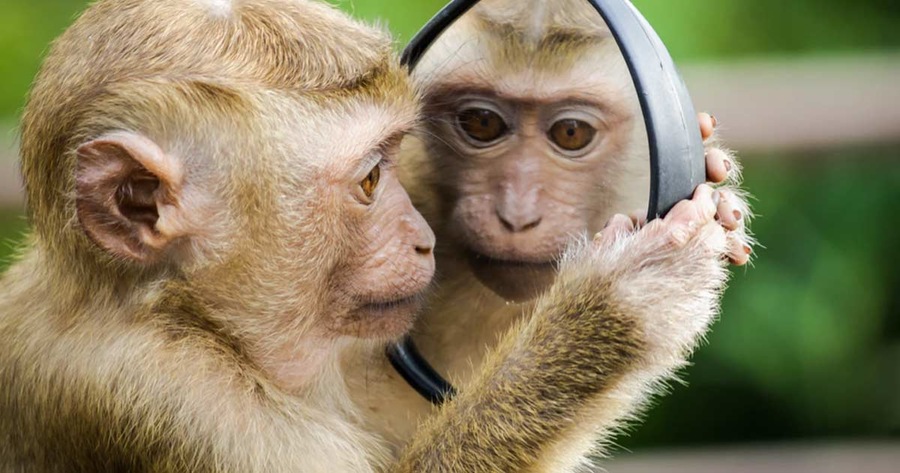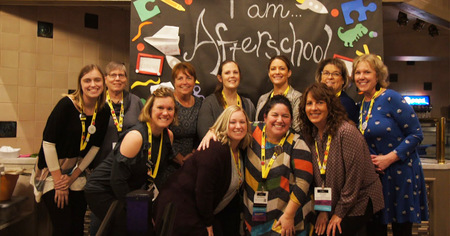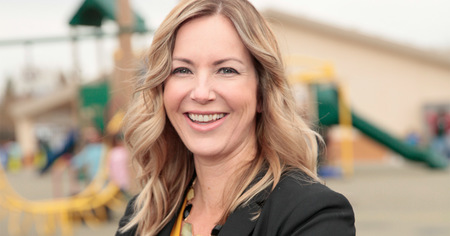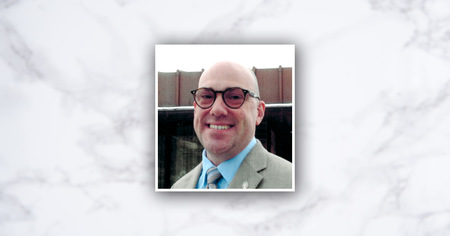As I'm writing this, Chicago Public Schools announced an all-remote start to the school year—until at least November. Most students across the country will experience varying degrees of remote learning.
For those who are going back, they'll be expected to learn the way they normally would. Except they have to wear a mask all day long. And they have to learn from teachers wearing face shields, who can't move from the front of the classroom. And they can only participate virtually, at best, in the afterschool programs they love.
It's going to be so easy for students and the adults serving them to get bogged down by new distractions and uncomfortable procedures. This is why both students and staff need a compelling future vision for their lives. You have to be able to think beyond this fall—because you get more of what you focus on.
- If you focus on the changes and distractions, this new normal will feel insurmountable. You'll get worn out, frustrated and lose momentum toward your goals.
- But if you focus on compelling future goals, you'll see these changes as simply obstacles to be overcome on the way to your goals. You'll figure out how to navigate this new normal and your future vision won't be affected.
To shift focus toward positive thoughts and productive actions, here are three things we've been recommending to youth—and educators.
Step 1: Discover your passions.

To bring out the best version of themselves, youth have to know what they love and what excites them.
Without energy from their passions, the obstacles this fall will be too overwhelming. Youth will feel lost, opt for doing the bare minimum and choose what feels easy.
Instead, they need to identify current and potential passions and incorporate them into their daily lives- whether that's through daily breaks to explore their passions, or connecting required academic activities with those passions.
This will help them discover their "Why?"—why pushing through this uncertainty matters specifically to them.
I'm an entrepreneur who gets to make my own schedule. Every morning at 6 a.m. during this pandemic, it's so tempting to hit the snooze button. I have nowhere to go, and any meetings I have are typically in the afternoon. The TV is also right there. I could watch any movie or show I want, anytime.
But I love what I do, so I've been able to push through the uncertainty and keep my same routine:
- Wake up at 6 a.m., stretch, journal and gratitude.
- Work without distractions for three to four hours.
- Take a break to work out and eat. (Two more things I'm passionate about.)
- Take meetings and finish work in the afternoon.
- Dinner and relaxation.
Enabling youth to find and do what they love every day will help them push through. Questions to discover what makes you tick:
- What do you love to talk about, learn about and/or teach others about?
- When are you happiest?
- What problems do you feel strongly about?
- What comes easier to you than most people?
- What do you do when you have meaningful free time?
Step 2: Incorporate those passions into compelling future goals.
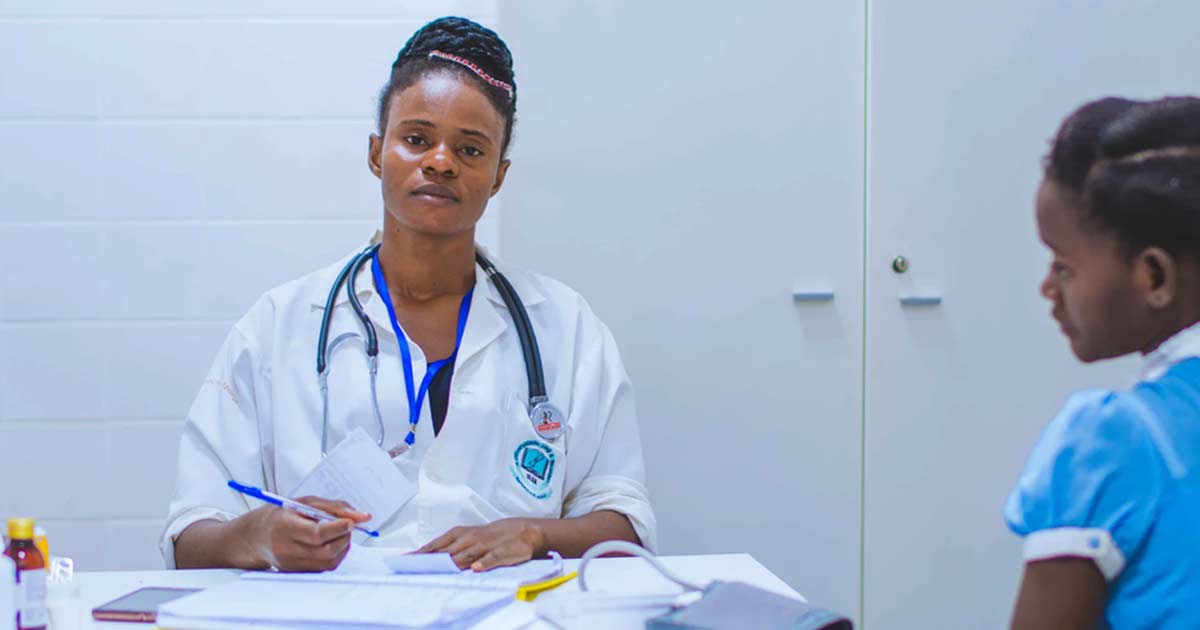
How often do you think youth ask themselves: "What do I want my life to look like in 10 years?"
We rarely give them the space or time to reflect on this important question. We assume the best path for everyone is high school to college to career. So we stress the importance of the "urgent" tasks and activities that will help them through this journey.
But without their own long-term perspective, these urgent tasks lose significance. Especially right now.
Have your young people experienced "Zoom fatigue?" Have you?
While I do miss going to my co-working space and meeting people in-person, my "Zoom fatigue" is highly manageable. Because I have compelling personal and professional 10-year goals. I care deeply about accomplishing those goals, but I don't care too much how I get there. If Zoom calls are the method for now, then so be it!
Youth should feel the same way. But to get them there, youth need to connect their passions from step 1 to future goals that matter to them. These compelling future goals will allow them to find the strength, courage, creativity and persistence they need to push through this pandemic.
Questions to connect your passions to your future goals:
- Imagine the alarm goes off and it's Monday morning. Except it's the year 2030. What does your day look like?
- If you won the lottery—set for life—but had to continue working, what kind of career would you choose? What is the job that would make you excited to wake up and go to work every day?
- How could you earn money from your passions?
- What would an amazing life outside of work in 10 years look like for you?
- What would your ideal relationships look like in 10 years?
Step 3: Spend time now working toward those goals.

With education being so standardized, many young people feel like they don't have time to do what they'd really like to, such as work toward those compelling goals. This pandemic has given some youth more time back in their day due to less live instruction and no commute. But using that extra time to work toward those goals still requires them to know what "the work" should look like.
Paralysis can set in from not knowing where to start, feeling overwhelmed and wondering if they're even spending time on the right things. We can help young people by:
- Dividing this work into three categories: Learn, Practice, Connect.
- Identifying the few critical steps in each category to focus on for 12 weeks.
When I realized I wanted to learn copywriting—the skill of writing marketing text that gets people to take a desired action—I did the following:
- Learn. I had to understand the principles, strategies and techniques of great copywriting. I studied the work of my favorite copywriters, bought one book and completed two online courses.
- Practice. I had to implement what I learned by writing emails, blog posts, lesson plans and online courses.
- Connect. Not only did I "connect" with my favorite copywriters by learning from their books and courses, but I had conversations with some of them about how they became great and even had them review some of my work.
Youth can do this for any skill they want to learn or any future goal they have. Understanding what these critical activities are and making time for them puts them ahead of 99% of their peers. Questions to identify the most critical activities for your goals:
- Learn. What would it take to become a knowledge expert in your desired field or skill? What books, podcasts, videos, documentaries and online courses can you use to acquire that knowledge?
- Practice. What do the current experts in that field recommend for practice? Break down the desired skill into subskills. What kind of practice routine can you create to get better at those subskills?
- Connect. Who could you connect with that has already experienced success in this area? How could you connect with them? What kind of relationship could you establish?
While the situation might be challenging, the formula for success is simple. If you focus only on what's different and right in front of you, you're going to feel lost, frustrated, and unmotivated.
If you put this situation in its rightful place—merely an obstacle to be overcome on the way to your future goals—you can rise above it and thrive towards your compelling future.
Want a tangible worksheet for each of these steps? Check out our free Three 2 Thrive worksheets you can use with youth and staff to help them thrive through this new normal of education and afterschool.
Matthew Moheban is an NAA Advocate member and the Co-Founder of 220, which creates online courses to help students succeed in the real world.

